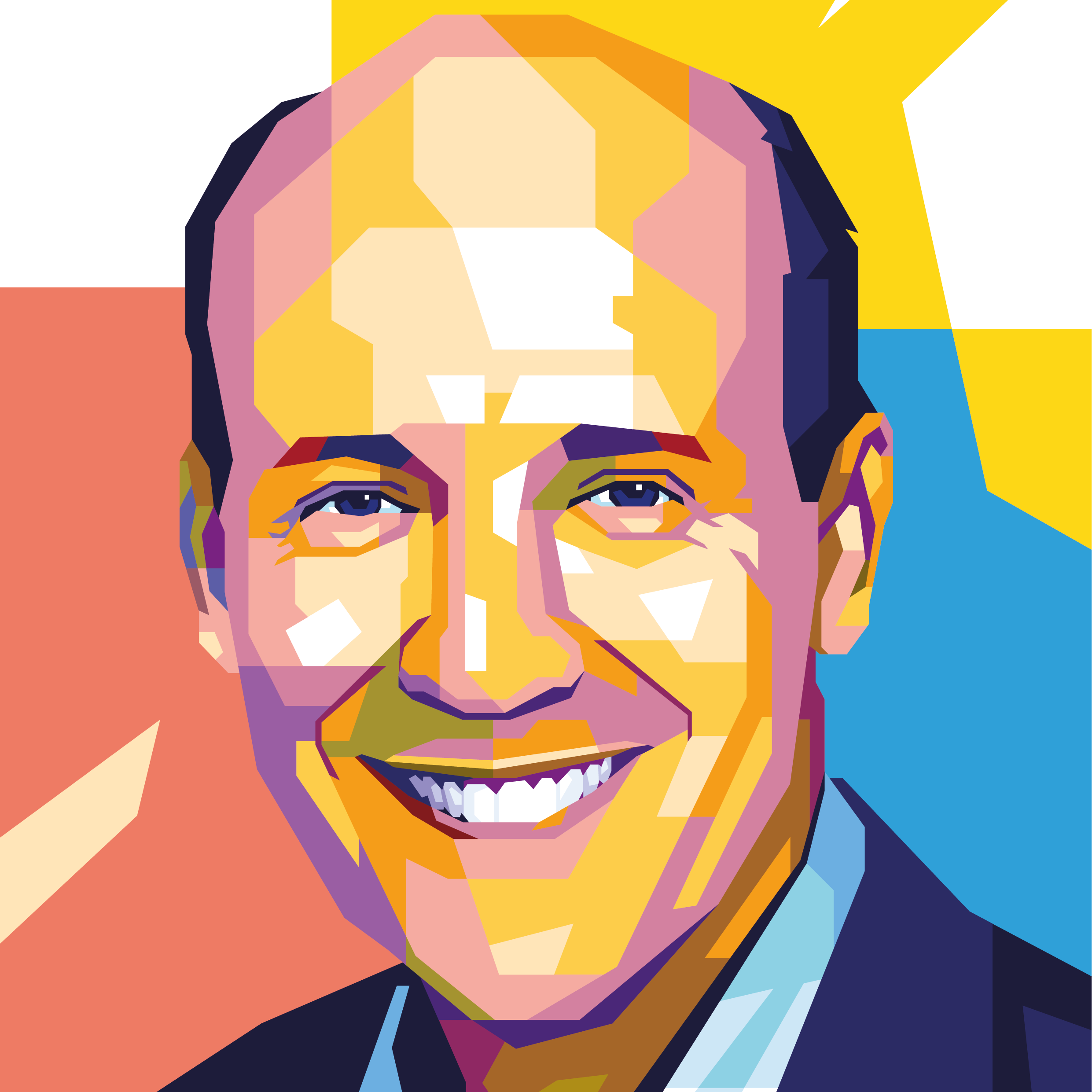Finding good people is never easy. For RIAs, now it’s even more challenging.
“It’s more difficult to hire good talent now,” says James Hering, chief operating officer for Bordeaux Wealth Advisors in Menlo Park, California. “There’s a shortage of experienced advisors.”
A rapidly aging workforce, a lack of young advisors to take their place and an imbalance of supply and demand has resulted in a seller’s market fueled by intense competition from financial service giants.
Over one-third of financial advisors are expected to retire within the next ten years, according to a recent study by Cerulli Associates. Fidelity Investments aims to make around 28,000 hires in the next two years and Vanguard and Charles Schwab aren’t far behind. Five years ago, an advisor may have had three or four firms competing to add them to their roster. Today that number may be as high as 20 or more, according to executive search firm Diamond Consultants.
So how can RIAs recruit in this environment?
Not surprisingly, they’ll have to pay up – and pay more. Advisory firms now have to pay a premium of 15% to 20% above last year’s compensation packages to remain competitive, according to “Pulse of the Industry 2022,” a mid-year survey of U.S. RIAs conducted by The Ensemble Practice, an industry consulting firm.
“Someone you could hire for $100,000 last year now can get $115,000 or $120,000,” says Ensemble CEO Philip Palaveev. “The cost of talent has increased quite a bit.”
For senior-level positions, RIAs may have to up the ante even more. According to the firm's president Matt Cooper, Beacon Pointe Advisors has had to double its base compensation rate for some positions in the past two years. “Hiring firms now have to bear more risk upfront,” Cooper says.
At a minimum, compensation has to be competitive, so compare your offers to industry benchmarks found in surveys issued by Charles Schwab, Fidelity, Botoff Consulting and others.
Cash compensation can also be used to outbid the competition if you have sufficient capital resources. “If you hire the best, you can pay them more,” says Jason Fertitta, chief executive of Americana Partners in Houston. “It’s a smart move – one high-quality hire can do the work of two average advisors.”
If your upfront offer is limited, there’s always incentive compensation. Gratus Capital in Atlanta, for example, offers advisors and business development specialists an incentive compensation plan based on a percentage of AUM billing and revenue. “It aligns the firm’s interests with the advisor and has been very successful,” says Meredith Michael, director of human capital at Gratus.
Compensation is just the starting point. Equity is fast becoming table stakes in the competition for top talent.
“Firms who want the best candidates have to offer ownership,” says industry consultant Jamie McLaughlin. “That’s been the big change. Field studies have shown that equity is a cultural determinant at high-performing firms.”
In a cutthroat marketplace where “too many firms are chasing too few advisors,” veteran executive recruiter Danny Sarch agrees. “If you can prove the value of your equity is appreciating,” Sarch says, “that’s your ace in the hole.”
Since the outbreak of the Covid-19 pandemic, job candidates are increasingly insisting on a reasonable work-life balance and flexibility when it comes to working at home or in the office.
“That’s something we didn’t see pre-Covid,” says Michael. “Gratus fully transitioned to remote work and now advisors come in an average of two days a week. When hiring, we make a point of asking people what’s important to them and family usually comes first, followed by a flexible schedule. We try to accommodate those priorities and it’s been incredibly attractive to job candidates.”
Benefits packages are also becoming more competitive.
Advisory firms offer candidates perks, including Netflix subscriptions, DoorDash accounts, gym memberships and massage therapy. “Broader benefits are part of the heightened expectations [job candidates] have for employment packages,” says Eric Sontag, COO for New York-based Wealthspire Advisors.
Laying out a career path for candidates has also become a critical recruiting tool.
“Advisors want to see that the firm is growing and a path for how they can grow with it,” says Hering. “It’s an important piece of your value proposition.”
And while the importance of corporate culture has come close to being an industry cliché, it is a factor in recruiting, say, industry executives.
“Hiring is all about aligning expectations and fit,” says Hering. “People want to enjoy working with their colleagues and their client. We want to create an environment where people want to be and we encourage candidates to talk with people on staff to see what our culture is like.”
Mergers and acquisitions can also be a highly effective recruiting strategy.
“The single most important rationale for achieving scale in our industry is an increased ability to acquire and retain top talent,” according to Wealthspire’s Sontag.
Acquiring proven talent has been a primary motivation for M&A deals at Savant Wealth Management, says CEO Brent Brodeski. Opening a new office with new advisors is “too hard and too much work,” Brodeski says. But buying an RIA with experienced and productive advisors is “how I get the best people,” he explains.
“The best way to grow is organic,” Brodeski says, “and the number one organic growth strategy is inorganic. Savant grows faster when it buys more firms and adds experienced advisors.”
Consider an Intern Program
Internship programs can be a rich resource for recruiting.
Every year the firm New York-based Wealthstream Advisors surveys colleges with financial planning programs that also attract students from the east coast. Wealthstream then decides which schools to visit and sends out descriptions of job openings and internships. When executives visit the campus, they attend financial planning classes, teach, talk to students about the firm, the RIA business and life in New York City and conduct interviews.
Back in the office, the Wealthstream advisors select the best candidates, ask them to write up a case study and fly them to New York to make a presentation. After being interviewed by people in the firm, finalists are given “third-party assessments,” including a personality test and tests for numerical reasoning and critical thinking.
“We want to make sure we don’t miss anything,” says Michael Kimmel, senior advisor in charge of recruiting for Wealthstream. “You’re looking for the right balance between technical knowledge and soft skills.”
The process has worked well, says Wealthstream president Michael Goodman. “You have to be willing to commit to it and develop HR skills, but it’s been very rewarding.”
Katherine George, who graduated from Virginia Tech in 2017 and is now a senior advisor at Wealthstream, says she was impressed by Wealthstream’s rigorous interviewing process. “The process was very robotic and impersonal at other firms, where you just filled out some forms,” she says. “Wealthstream took the time to learn about me and explained their culture and what it was like to live in New York City. It felt like they were making an investment that benefitted both of us.”
Intern programs have been a successful recruiting tool for another New York-based firm with a similar name – Wealthspire. This past year Wealthspire hosted 16 interns, its largest class ever.
“We utilize a mix of campus and online recruiting to hire interns,” says Zach Gering, a managing director at the firm that heads recruiting. “Some of our offices have strong relationships with universities in their region, while others cast a wider net using online platforms.”
Wealthspire trains its interns as if they were full-time employees, starting with education and learning the firm’s processes and technology. Once the training period is over, each intern reports to a team daily. The team is responsible for assigning the intern work, including preparing for a client meeting, updating a financial plan, or working on a proposal.
The interns work on two projects at different points during the program. One is a group research project where they explore topics like equity compensation or divorce law. The other is an individual capstone project that involves a hypothetical prospect’s financial situation. They analyze the prospect’s situation from a planning and investment standpoint and then present their conclusions to a group.
“Our goal is to hire many interns, but each office has different staffing needs,” Gering says. “Overall, we expect Wealthspire to hire between six to eight of our interns. We frequently hear from our interns that they find the overall experience incredibly valuable regardless of whether they receive a full-time offer.”
This blog is sponsored by AdvisorEngine Inc. The information, data and opinions in this commentary are as of the publication date, unless otherwise noted, and subject to change. This material is provided for informational purposes only and should not be considered a recommendation to use AdvisorEngine or deemed to be a specific offer to sell or provide, or a specific invitation to apply for, any financial product, instrument or service that may be mentioned. Information does not constitute a recommendation of any investment strategy, is not intended as investment advice and does not take into account all the circumstances of each investor. Opinions and forecasts discussed are those of the author, do not necessarily reflect the views of AdvisorEngine and are subject to change without notice. AdvisorEngine makes no representations as to the accuracy, completeness and validity of any statements made and will not be liable for any errors, omissions or representations. As a technology company, AdvisorEngine provides access to award-winning tools and will be compensated for providing such access. AdvisorEngine does not provide broker-dealer, custodian, investment advice or related investment services.








